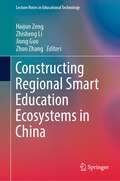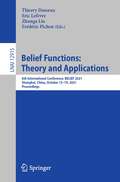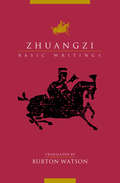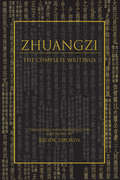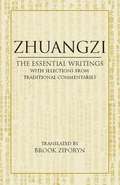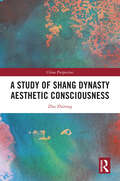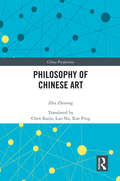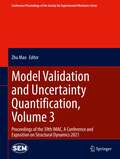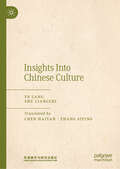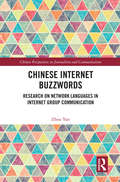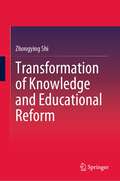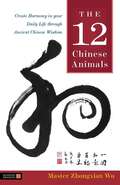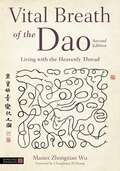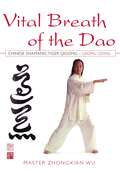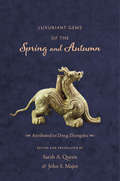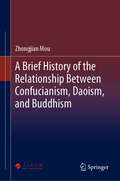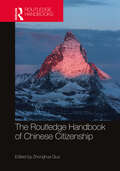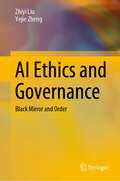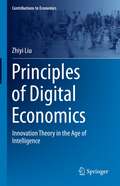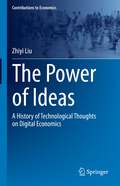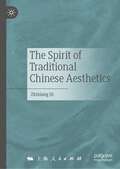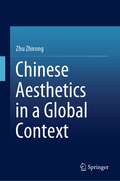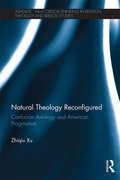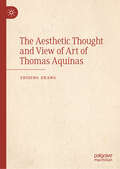- Table View
- List View
Constructing Regional Smart Education Ecosystems in China (Lecture Notes in Educational Technology)
by Haijun Zeng Zhisheng Li Jiong Guo Zhuo ZhangThis book enriches the understanding of regional smart education in China and promotes sharing of smart education case studies in China and abroad. It presents 46 case studies selected from a total of 644 case studies collected nationwide in China. These selected case studies focus on regional construction, research findings, and solutions. The case studies on regional construction mainly focus on the sustainable development mechanism of regional smart education. The research findings case studies showcase research results produced by research teams and individuals, which involve theories, models, technologies, practical investigations, or international comparisons related to smart education. Lastly, the solution case studies are technical solutions provided by enterprises for the development of smart education, which include application scenarios, methods, and effects in regions or schools around smart educational equipment, platforms, networks, tools, resources, or integrated solutions.
Belief Functions: 6th International Conference, BELIEF 2021, Shanghai, China, October 15–19, 2021, Proceedings (Lecture Notes in Computer Science #12915)
by Frédéric Pichon Thierry Denœux Eric Lefèvre Zhunga LiuThis book constitutes the refereed proceedings of the 6th International Conference on Belief Functions, BELIEF 2021, held in Shanghai, China, in October 2021. The 30 full papers presented in this book were carefully selected and reviewed from 37 submissions. The papers cover a wide range on theoretical aspects on mathematical foundations, statistical inference as well as on applications in various areas including classification, clustering, data fusion, image processing, and much more.
Zhuangzi: Basic Writings (Translations from the Asian Classics)
by ZhuangziOnly by inhabiting Dao (the Way of Nature) and dwelling in its unity can humankind achieve true happiness and freedom, in both life and death. This is Daoist philosophy's central tenet, espoused by the person—or group of people—known as Zhuangzi (369?–286? BCE) in a text by the same name. To be free, individuals must discard rigid distinctions between right and wrong, and follow a course of action not motivated by gain or striving. When one ceases to judge events as good or bad, man-made suffering disappears, and natural suffering is embraced as part of life.Zhuangzi elucidates this mystical philosophy through humor, parable, and anecdote, using non sequitur and even nonsense to illuminate truths beyond the boundaries of ordinary logic. Boldly imaginative and inventively written, the Zhuangzi floats free of its historical period and society, addressing the spiritual nourishment of all people across time. One of the most justly celebrated texts of the Chinese tradition, the Zhuangzi is read by thousands of English-language scholars each year, yet, until now, only in the Wade-Giles romanization. Burton Watson's conversion to pinyin in this book brings the text in line with how Chinese scholars, and an increasing number of other scholars, read it.
Zhuangzi: The Complete Writings
by ZhuangziBrook Ziporyn's carefully crafted, richly annotated translation of the complete writings of Zhuangzi—including a lucid Introduction, a Glossary of Essential Terms, and a Bibliography—provides readers with an engaging and provocative deep dive into this magical work.
Zhuangzi: With Selections from Traditional Commentaries
by Brook Ziporyn ZhuangziIdeal for students and scholars alike, this edition of Zhuangzi (Chuang Tzu) includes the complete Inner Chapters, extensive selections from the Outer and Miscellaneous Chapters, and judicious selections from two thousand years of traditional Chinese commentaries, which provide the reader access to the text as well as to its reception and interpretation. A glossary, brief biographies of the commentators, a bibliography, and an index are also included.
Chuang Tzŭ: Taoist Philosopher and Chinese Mystic
by Herbert A. Giles Zhuang ZiChuang Tzŭ belongs to a period three or four centuries before Christ. A disciple of Lao Tzŭ, his writings, which as a consequence are mostly allegorical, are an attempt to refute the materialistic Confucian teaching that arose after Lao Tzŭ's death. Although Chuang Tzŭ failed in his aims, he left a work of marvellous literary beauty and great originality. This classic translation makes Chuang Tzŭ available to English readers with the aid of a running commentary incorporated in the body of the text.
A Study of Shang Dynasty Aesthetic Consciousness (ISSN)
by Zhu ZhirongThis book explores the aesthetic consciousness of the Shang Dynasty and its influence on Chinese aesthetic development and contemporary aesthetic creation.The Shang Dynasty is the first era in China with authentic historical documentation. Its artifacts and inscriptions have great aesthetic value and serve as vivid and rich records of aesthetic concepts. By examining the production and use of pottery, jade, bronze, and oracle bone inscriptions, the book sheds light on the functions of these creations as media for conveying emotions driven by human nature. By discussing how the Shang script was invented and used, the author explores the significant role it played in the development of the aesthetic consciousness of the Chinese ancients. Based on surviving documents, including the hexagrams in the Book of Changes, the Pan Geng in the Book of Documents, and the Shang Songs in the Book of Songs, he further examines the poetic characteristics of Shang literature, recognizing it as both historically and literarily significant.The title is essential reading for scholars, students, and general readers interested in Chinese aesthetics, ancient Chinese civilization, culture, and art.
Philosophy of Chinese Art (China Perspectives)
by Zhu ZhirongThis title provides a systematic examination of the philosophy of Chinese art, exploring the peculiarity of artistic forms and distinctive conceptions and artistic principles of Chinese art which are grounded in the life awareness of the ancient Chinese and interconnect with the Chinese philosophy of life.Synthesizing Chinese theories of art with Western philosophical systems, the book is organized into five parts: (1) the subject, the actor who creates, appreciates, and criticizes artistic works; (2) ontological aspects, that is, the artwork per se and the dynamic process of creation; (3) aesthetic traits, the organic whole constituted by rhythm, meter, the principle of harmony, and space-time awareness; (4) artistic representation, which is manifested in the rhythm of vital energy, momentum of genre, vigour of style, and taste and inclination; and (5) the evolution of Chinese art. Based on this structural thread, the author looks into the interwoven relationship between the philosophy of Chinese art and ancient Chinese thought in terms of the spirit of life, nature–human relations, and ontological awareness of human-centredness.The book will appeal to scholars, students, and general readers interested in aesthetics, art theory, art philosophy, Chinese art, and ancient Chinese culture.
Model Validation and Uncertainty Quantification, Volume 3: Proceedings of the 39th IMAC, A Conference and Exposition on Structural Dynamics 2021 (Conference Proceedings of the Society for Experimental Mechanics Series)
by Zhu MaoModel Validation and Uncertainty Quantification, Volume 3: Proceedings of the 39th IMAC, A Conference and Exposition on Structural Dynamics, 2021, the third volume of nine from the Conference brings together contributions to this important area of research and engineering. The collection presents early findings and case studies on fundamental and applied aspects of Model Validation and Uncertainty Quantification, including papers on:Inverse Problems and Uncertainty QuantificationControlling UncertaintyValidation of Models for Operating EnvironmentsModel Validation & Uncertainty Quantification: Decision MakingUncertainty Quantification in Structural DynamicsUncertainty in Early Stage DesignComputational and Uncertainty Quantification Tools
Insights into Chinese Culture
by Ye Lang Zhu LiangzhiHighlighting the pinnacle achievements of Chinese culture, this book presents the authors’ profound insights into the concepts and passions that have shaped the Chinese nation over the past 5,000 years. By exploring this rich historical legacy of remarkable creativity and innovative spirit, still evident today in living masterpieces of art, architecture and fascinating folk traditions, readers will gain a deeper understanding of the cultural identity, worldview, aesthetic pursuits, and national spirit of the Chinese people.
Chinese Internet Buzzwords: Research on Network Languages in Internet Group Communication (Chinese Perspectives on Journalism and Communication)
by Zhou YanAs the Internet has reshaped the way we communicate, people’s reading has become more fragmented and attention has been directed to a more concise and general form of language that outlines the most important information. This language of the internet, a language system that concentrates on the content of events and public emotions, has emerged and received wide currency. This monograph is one of the first books to examine the language of the internet in the Chinese context. By analysing content and discourse, the author examines Chinese website buzzwords since 2010. She reveals the mechanisms of generation, the cultural nature and political characteristics of the network language, analyzes the causes of its emergence and popularity, and highlights its social and academic significance. Meanwhile, she argues that research in the area is essentially interdisciplinary, involving not only perspectives from Journalism and Communication Studies, but also Philosophy, Culture, Linguistics and Sociology. Students and scholars of Communication Studies and Journalism, as well as Culture Studies should be greatly interested in this title.
Transformation of Knowledge and Educational Reform
by Zhongying ShiThis book defines the concept of knowledge transformation, describes the historical process of knowledge transformation, and analyses its deep influence on education theory and practice by virtue of multiple discipline resources. The general scope of this book encompasses the philosophy of education, curriculum studies, and education reform research. It enables readers to understand how 'hidden' epistemological factors have changed or reshaped the education system throughout history and at present.
The 12 Chinese Animals: Create Harmony in your Daily Life through Ancient Chinese Wisdom
by Zhongxian Wu* Silver Medal Winner in the 2010 BOTYA Awards Body, Mind and Spirit Category * The Chinese horoscope holds the key to a better understanding of self and others, and to living a life of harmony. Not just the year of birth, but also the month, day and hour have significance in true Chinese astrology. Master Zhongxian Wu explains how to find your power animal symbols, and how to learn from their wisdom. By fully understanding what each animal signifies, and how they relate to the major hexagrams of the Yijing, he shows that they can help you to find inner peace and live in harmony with family, friends, the wider community, and with nature. Using the wisdom of the twelve animal symbols as a guide, you will learn how to better understand your personality, and make choices that profoundly influence your health, relationships, career, and finances, allowing you to live up to your greatest potential. Making the wisdom of the twelve Chinese animals accessible to the Western reader for the first time in its relationship with the Yijing, this book will be an illuminating read for anyone interested in understanding themselves and their life patterns better, Chinese astrology, and the Yijing.
Vital Breath of the Dao
by Zhongxian Wu Master Zhongxian WuImmersing the reader in Daoist philosophy and its impact on life, this new edition of Vital Breath of the Dao by Master Zhongxian Wu is a fully illustrated guide to qigong, a way of physical and spiritual cultivation, and a way of life. The book includes the historical background, practical application, underlying principles and techniques of Daoist cultivation practices to bolster health and intensify spiritual connection to universal energy. Lineage holder Master Zhongxian Wu uses storytelling and a wealth of practical examples to introduce powerful qigong and internal alchemy methods and offers previously unseen personal stories to deepen his explanation of Daoist philosophy.
Vital Breath of the Dao: Chinese Shamanic Tiger Qigong - Laohu Gong
by Zhongxian WuVital Breath of the Dao is a fully illustrated guide to the historical background, practical application, underlying principles and techniques of Qigong, a way of physical and spiritual cultivation, and a way of life. Chinese Shamanic Tiger Qigong is a uniquely potent practice designed to bolster health and deepen spiritual connection to universal energy. Lineage holder Master Zhongxian Wu uses story-telling and a wealth of practical examples to introduce this powerful 24-movement Qigong form, which combines the traditions of ancient shamanism, Confucianism, Daoism, classical Chinese medicine, and the martial arts. An excellent introduction for Qigong beginners, the book will also be of interest to experienced practitioners, students of classical Chinese Medicine and anyone interested in Classical Chinese culture and anthropology.
Luxuriant Gems of the Spring and Autumn (Translations from the Asian Classics)
by Zhongshu DongThe Spring and Autumn (Chunqiu) is a chronicle kept by the dukes of the state of Lu from 722 to 481 B.C.E. Luxuriant Gems of the "Spring and Autumn" (Chunqiu fanlu) follows the interpretations of the Gongyang Commentary, whose transmitters sought to explicate the special language of the Spring and Autumn. The work is often ascribed to the Han scholar and court official Dong Zhongshu, but, as this study reveals, the text is in fact a compendium of writings by a variety of authors spanning several generations. It depicts a utopian vision of a flourishing humanity that they believed to be Confucius's legacy to the world.The Gongyang masters thought that Confucius had written the Spring and Autumn, employing subtle phrasing to indicate approval or disapproval of important events and personages. Luxuriant Gems therefore augments Confucian ethical and philosophical teachings with chapters on cosmology, statecraft, and other topics drawn from contemporary non-Confucian traditions. A major resource, this book features the first complete English-language translation of Luxuriant Gems, divided into eight thematic sections with introductions that address dating, authorship, authenticity, and the relationship between the Spring and Autumn and the Gongyang approach. Critically illuminating early Chinese philosophy, religion, literature, and politics, this book conveys the brilliance of intellectual life in the Han dynasty during the formative decades of the Chinese imperial state.
A Brief History of the Relationship Between Confucianism, Daoism, and Buddhism
by Zhongjian MouChinese traditions of Confucianism, Daoism, and Buddhism have a profoundly philosophical dimension. The three traditions are frequently referred to as three paths of moral teachings. In this book, Mou provides a clear account of the textual corpus that emerges to define each of these traditions and how this canonical axis was augmented by a continuing commentarial tradition as each generation reauthorized the written core for their own time and place. In his careful exegesis, Mou lays out the differences between the more religious reading of these traditions with their defining practices that punctuate the human journey through life, and the more intellectual and philosophical treatment of the texts that has and continues to produce a first-order culture of annotation that become integral to the traditions themselves. At the center of the alternative religious experience reflected throughout the teachings of Confucianism, Daoism, and Buddhism is the project of personal cultivation as it comes to be expressed as robust growth in family and communal relations. For Mou, these three highly distinctive and yet complementary ways of thinking and living constitute a kind of moral ecology, wherein each of them complements the others as they stand in service to a different dimension of the human need for an educated spirituality.
The Routledge Handbook of Chinese Citizenship (China Perspectives)
by Zhonghua GuoTwo assumptions prevail in the study of Chinese citizenship: one holds that citizenship is unique to the Western political culture, and China has historically lacked the necessary conditions for its development; the other implies that China is an authoritarian regime that has always been subject to autocratic power, in which citizens and citizenship play a limited role. This volume negates both assumptions. On the one hand, it shows that China has its own unique and rich experiences of the emergence, development, rights, obligations, acts, culture, education, and sites of citizenship, indicating the need to widen the scope of citizenship studies to include non-Western societies. On the other hand, it aims to show that citizenship has been a core issue running through China's political development since the modern period, urging scholars to bring ‘citizenship’ into consideration in the study of Chinese politics. This Handbook sets a new agenda for citizenship studies and Chinese politics. Its clear, accessible style makes it essential reading for students and scholars interested in citizenship and China studies.
AI Ethics and Governance: Black Mirror and Order
by Zhiyi Liu Yejie ZhengThis book deeply analyzes the theoretical roots of the development of global artificial intelligence ethics and AI governance, the ethical issues in AI application scenarios, and the discussion of artificial intelligence governance issues from a global perspective. From the perspective of knowledge, the book includes not only the metaphysical research of traditional Western ethics, but also the interpretation of AI-related practical cases and international policies. The purpose of this book is not only to study AI ethics and governance issues academically, but to seek a path to solve problems in the real world. It is a very meaningful monograph in both academic theory and reality. This book responds to the implementation of China's digital economy governance and other topics. It is a cutting-edge academic monograph that combines industry, policy, and thought.In this book, the author not only discusses the humanities thoughts such as ethics, political economy, philosophy, and sociology, but also involves computer science, biology, and medicine and other science and engineering disciplines, effectively using interdisciplinary thinking as readers clarify how to explore ethical consensus and establish smart social governance rules in the era of artificial intelligence, so as to provide the most comprehensive and unique scientific and technological insights for smart economy participants, related practitioners in the artificial intelligence industry, and government policy makers. For academia, this is a representative book of Chinese scholars' systematic thinking on AI ethical propositions from a global perspective. For the industry, this is a book that understands the policies and ethical propositions faced by the development of AI industry. An important reference book, for policy makers, this is a monograph for understanding how policies in the AI industry make decisions that conform to AI industry practices and people's moral order.
Principles of Digital Economics: Innovation Theory in the Age of Intelligence (Contributions to Economics)
by Zhiyi LiuThis book aims to "digital economics" as an inter-discipline research area, by integrating economics, philosophy of technology, computer science and sociology. It takes an in-depth look at the history of technology development covering the changes and challenges to the society and thoughts, as it is, which helps readers to understand the logic and operation of the emerging integrated economy. Also a lot of innovation cases in digital transformation of China are presented in this book.
The Power of Ideas: A History of Technological Thoughts on Digital Economics (Contributions to Economics)
by Zhiyi LiuAs the first academic monograph that a Chinese scholar discusses the histories of thoughts and ideas related to the development of digital economics, this book aims to make research from the perspective of the history of ideas and discuss the ideas influencing the development of digital economics and the evolution of related theories and thoughts with the methodology of interdisciplinary research.The human society is in the stage of major historic transition and enters the digital world with the main goal of developing the artificial world. In this world, the development of digital economics is significantly characterized by the deep interaction between the real and the virtual worlds, while the key triggering this paradigm reform is the evolution of ideas since the modern times. While involving the field of computer, these thoughts are also related to the fields of philosophy, ethics, communication and economics. Therefore, the results of the research on the history of ideas related to digital economics are required to really understand the depth of this discipline. If computationalism is the most important paradigm evolution of natural science, the most important paradigm evolution of social science is interdisciplinary complex science. In the meantime, this book is the most significant in understanding the nature of paradigm evolution related to the development of digital economics from the perspective of complex science and interdisciplinary systematic researches.Digital economics is in the foundation-laying phase, while this book mainly aims to historically narrate the thoughts of this discipline and hopes that readers can understand the influence of ideas in the old era on shaping the disciplines in the new era while exploring this new discipline. The construction of digital economics is a process of evolution. This book will be helpful to understand the underlying logic of the ideas constructed by the thinkers in different fields.
The Spirit of Traditional Chinese Aesthetics
by Zhixiang QiThis book differentiates between and analyzes the Confucian, Taoist and Buddhist spirit in traditional Chinese aesthetics, explains the core characteristics and methods of traditional Chinese aesthetics, and conveys the author’s overall thinking on the spirit of traditional Chinese aesthetics. Given its scope, the book is of great value in terms of understanding and promoting China’s unique traditional culture.
Chinese Aesthetics in a Global Context
by Zhirong ZhuThis book examines aesthetic issues based on humanities principles and creates a theory of Chinese aesthetics from a global perspective by applying China’s traditional and cultural history to a Western theoretical framework. In particular, this book emphasizes the shared features of Confucianism, Daoism, and Buddhism, namely the unity of heaven and men, unity of nature and society, and the materialization of human feelings and humanization of material things. It also highlights the dominant role of humans in the aesthetic relationship between human and object, while placing imagery in a focal position.
Natural Theology Reconfigured: Confucian Axiology and American Pragmatism (Routledge New Critical Thinking in Religion, Theology and Biblical Studies)
by Zhiqiu XuClassic natural theology in its logical, rational, Aristotelian presentation has encountered an impasse. Since the Enlightenment, nature has ceased to be a vital topic in theological discussions until a recent revival of interest stemming from ecological and feminist concerns. Provocatively transcending boundaries between Philosophy and Theology, ancient and contemporary, East and West, Natural Theology Reconfigured revitalises the validity and relevancy of Natural Theology, a shipwrecked concept in the West, with the aid of Eastern Confucian Axiology and American Pragmatism.
The Aesthetic Thought and View of Art of Thomas Aquinas
by Zhiqing ZhangThis book examines Aquinas's aesthetic thought and view of art within the broader context of medieval aesthetics and the history of aesthetic development, emphasizing its profound influence on later aesthetics. The book not only elaborates on Aquinas's efforts to establish coherence between faith and reason, the transcendent and empirical, as well as its significance, but also discusses the main contents and characteristics of Aquinas's aesthetic thought from the three aspects of the ontology of beauty, the theory of form, and the theory of experience. By examining Aquinas's aesthetic thought and view of art in relation to modern aesthetics and twentieth-century aesthetics, this book reveals the immense vitality of Aquinas's aesthetic thought.
